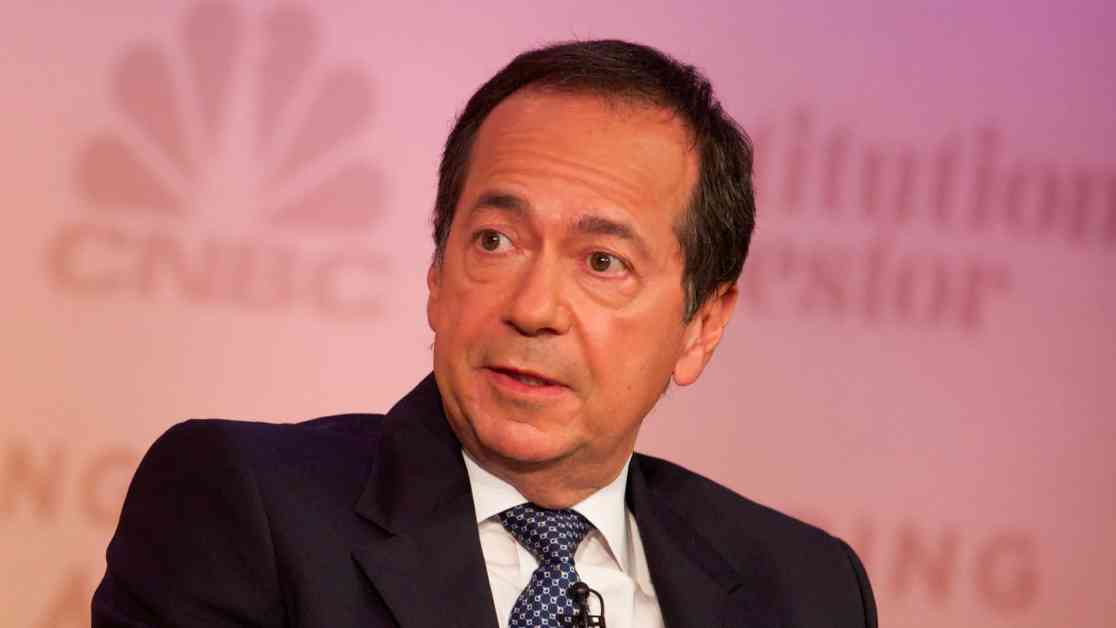Hedge fund billionaire John Paulson, known for his successful bet against the housing market during the financial crisis, issued a warning about the potential consequences of Vice President Kamala Harris’ proposed tax plans. Paulson, a prominent supporter of former President Donald Trump, expressed concerns that if Harris’ tax policies were to be implemented, the financial markets could experience a significant downturn leading to a recession.
In an interview on CNBC’s “Money Movers” with Sara Eisen, Paulson highlighted key aspects of Harris’ proposed tax changes. These include raising the corporate tax rate from 21% to 28%, increasing the capital gains tax from 20% to 39%, and adding a tax on unrealized capital gains of 25%. According to Paulson, such policies could trigger a market crash with far-reaching consequences.
The Democratic presidential nominee has proposed a 28% tax on long-term capital gains for households earning $1 million or more annually. This rate is lower than the 39.6% proposed by President Joe Biden in his 2025 fiscal year budget. Additionally, Harris has endorsed Biden’s plan to impose a 25% tax on unrealized gains for households with a net worth of at least $100 million, known as the billionaire minimum tax.
However, there have been doubts raised about the feasibility of implementing a tax on unrealized gains, with some close to the Harris campaign indicating that she may not be in favor of such a measure. Investor Mark Cuban has expressed skepticism about the viability of taxing unrealized gains and questioned whether such a proposal could navigate through Congress.
Paulson, who gained fame and fortune by betting against mortgage bonds using credit default swaps before the financial crisis, has been a significant donor to Trump’s 2024 presidential campaign. He has also reportedly advised Trump on the concept of establishing a U.S. sovereign wealth fund. The 68-year-old investor believes that the economy could face a recession if Harris’ plan to tax unrealized gains is implemented, leading to widespread selling across various asset classes.
There is concern among some Wall Street economists and strategists that raising the corporate tax rate from the levels set by Trump could impact S&P 500 company earnings and weigh on share prices. However, no major firms have indicated that such a move would result in the kind of market crash that Paulson is warning about. Additionally, there are apprehensions that Trump’s economic policies, including proposed tariffs, could reignite inflation and expand the budget deficit, potentially offsetting any market-friendly measures.
Paulson, who Trump has reportedly considered for the role of Treasury Secretary in a second administration, expressed his belief that targeted tariffs would not necessarily lead to inflation. He also argued that lower taxes could stimulate economic growth, boosting revenues and narrowing the deficit gap. Despite these assertions, the potential repercussions of Harris’ tax plans remain a point of contention within financial circles.
In conclusion, John Paulson’s cautionary remarks about the impact of Vice President Kamala Harris’ tax proposals on the financial markets highlight the ongoing debate over economic policy and its implications for investors and the broader economy. As the discussion continues, it remains to be seen how policymakers will navigate the delicate balance between stimulating growth and addressing fiscal challenges.















